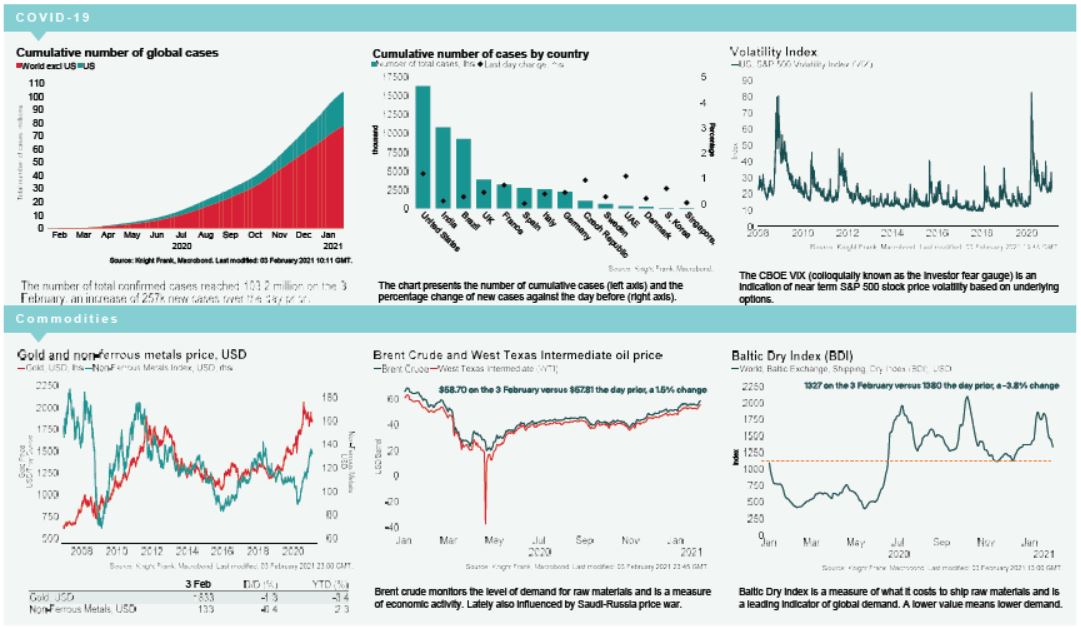Daily Economics Dashboard - 4 February 2021
An overview of key economic and financial metrics.
2 minutes to read

Download an overview of key economic and financial metrics on 4 February 2021 2020.
Equities: In Europe, stocks are higher this morning, with the FTSE 250, DAX and CAC 40 all up +0.3%, while the STOXX 600 has added +0.1%. In Asia, the KOSPI (-1.3%), S&P / ASX 200 (-0.9%), Hang Seng (-0.7%), TOPIX (-0.3%) and CSI 300 (-0.2%) were all down on close. In the US, futures for the S&P 500 are currently +0.1%, while the Dow Jones Industrial Average (DJIA) is flat.
VIX: Following a -9% decrease over Wednesday, the CBOE market volatility index has increased +1.2% this morning to 23.2, remaining above its long term average (LTA) of 19.5. Meanwhile, the Euro Stoxx 50 volatility index is lower, down -4.2% to 21.8, remaining below its LTA of 23.9.
Bonds: The UK 10-year gilt yield, US 10-year treasury yield and German 10-year bund yield have all held steady this morning at 0.37%, 1.14% and -0.47%. The UK 10-year gilt yield is the highest it has been since November 2020, while the US 10-year treasury yield is at its highest since 12th January 2021.
Currency: Sterling depreciated to $1.36, while the euro is currently $1.20. Hedging benefits for US dollar denominated investors into the UK and the eurozone are at 0.57% and 1.37% per annum on a five-year basis.
Baltic Dry: The Baltic Dry decreased for the ninth consecutive session on Wednesday, down -3.8% to 1,327, its lowest level since 22nd December. The index is now -29% below the four-month high seen in mid January. The capesize index continues to push prices down, contracting -8.9% yesterday to a new 7 week low.
Oil: The West Texas Intermediate (WTI) and Brent Crude continue to increase, up +0.7% and +0.5% this morning to $56.05 and $58.73, their highest prices since January and February 2020, respectively. This comes as Royal Dutch Shell ($21.7bn), BP ($18.1bn) and Exxon Mobil ($22.4bn) all posted annual losses in 2020.
Electric Vehicles: Despite total European car sales declining -24% over 2020, sales of fully electric and plug in hybrids across the European Union totalled 1.046 million vehicles in 2020, up from 387,808 in 2019, accounting for more than 10% of overall sales. While petrol and diesel vehicle sales declined -37% and -32%, respectively over 2020, petrol cars remain the largest sellers, accounting for circa 48% of all European car sales.